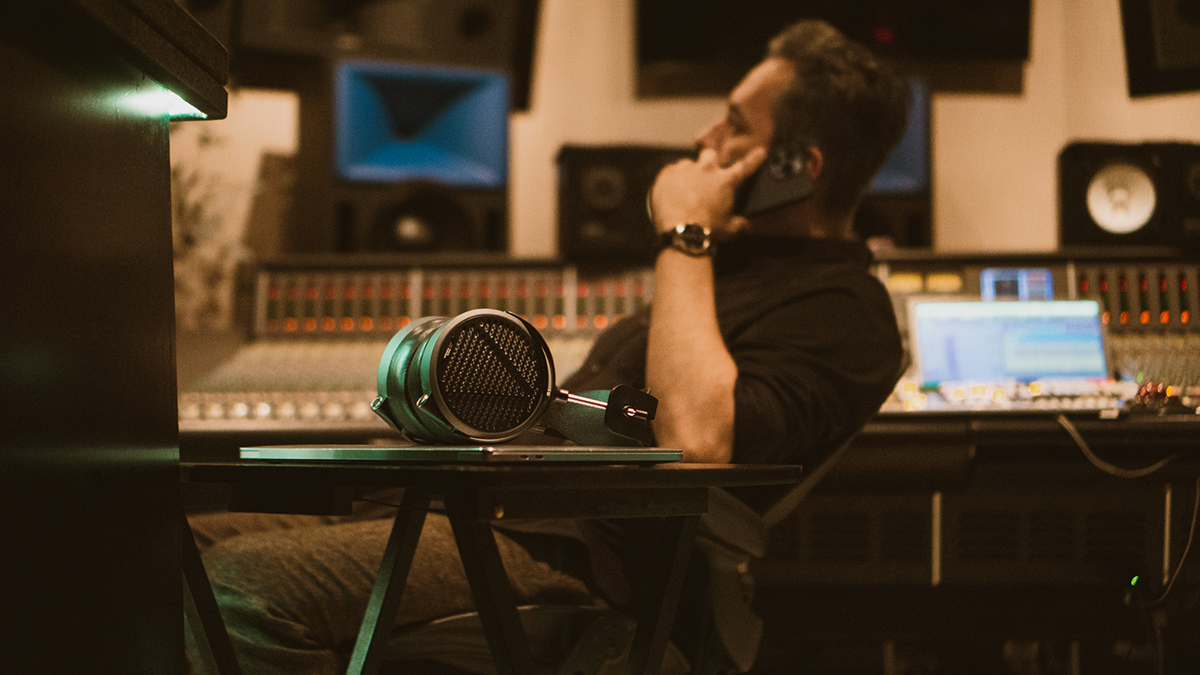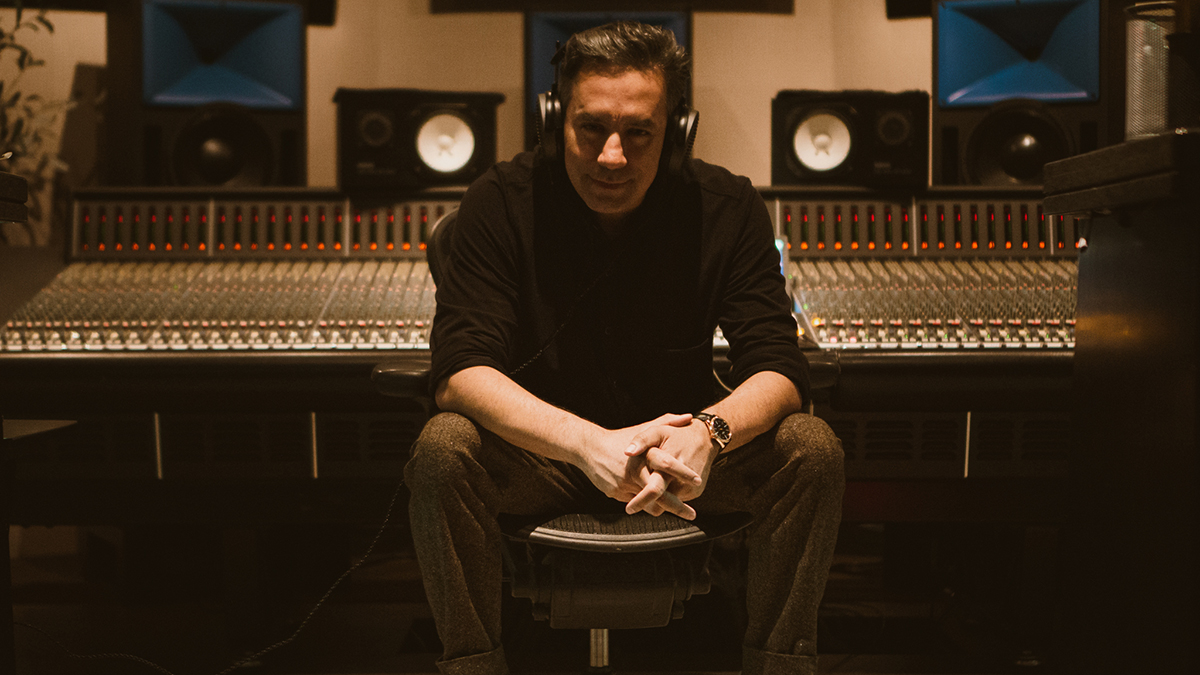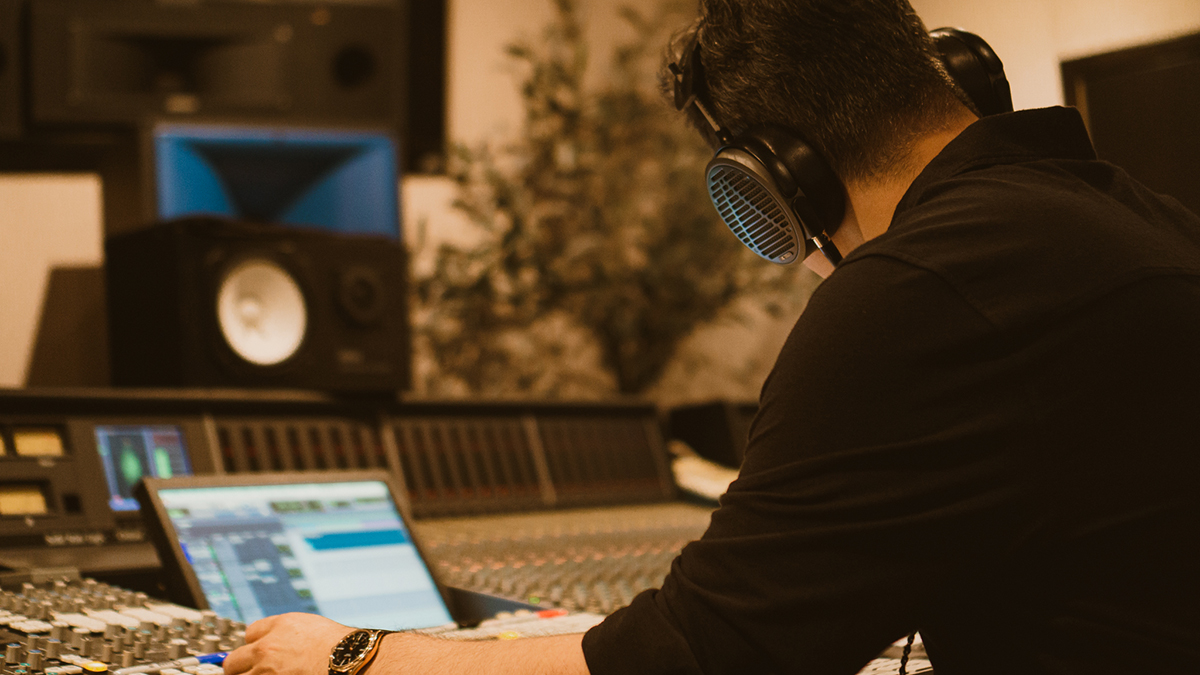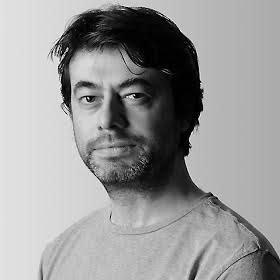Mix engineer Manny Marroquin: “I remember bringing the faders up on Umbrella and thinking ‘This is one of the best things I’ve ever heard’”
“Mixing is 50% creative and 50% technical. So it fulfils a lot of needs. I get to be creative and I get to play with toys!”

Meet the man behind the board on countless hit mixes for the world’s biggest artists (Whitney Houston, Bruno Mars, Paramore, Pusha T, Rihanna and more). From hip-hop to rock, Manny Marroquin’s skills are world-renowned, and he’s carved a reputation as THE go-to pro when the stars demand mix perfection.
Already in 2022 he’s mixed the Grammy-winning album of the year (Jon Batiste’s We Are) and the recently dropped smash, Mr Morale & The Big Steppers for Kendrick Lamar.
And now, working alongside top-spec headphone brand Audeze, he’s bringing his golden ears to bear on his own line of signature headphones, with his newly introduced Audeze MM-500.
A few weeks ago, We got the inside track on how the man behind a thousand hits works his magic and how you can do likewise.
You’re heading off to the NAMM show. Are you in the market for any new gear right now?
“Honestly, right now I’m not. I’m so busy at the moment. It’s tough for me to find the time to go there let alone take a day to look around. But it’s intense. It’s a lot of people and I tend to shy away from that. I think I’m going to go in, introduce the headphone and go.”
How did you get together with Audeze?
Want all the hottest music and gear news, reviews, deals, features and more, direct to your inbox? Sign up here.
“Audeze came to me about five years ago. A friend of mine introduced me to Mark Coen and he came to the studio with the LCD-X. He brought an amp and he said ‘you’ve got to listen to these’. So you’ve got your Sonys, y’know? Every studio has them and they’re always so bright. I’ve never viewed headphones as ‘quality’; for me they’re always a ‘necessity’ - you’ve got to wear headphones when you track. I’d never thought of headphones as a tool, creatively.
“So I listened and I thought ‘Wow, these are really good’. So I wanted to try them with what I was working on. I patched them into the console… And it was exactly like what I was hearing in my room.
“Just to give you a little history, I own Larrabee Studios. It’s been around for 50 years. Carole King’s husband owned it originally and about 14 years ago I ended up buying the place. My room specifically was Georgio Moroder’s original room back in the ’80s. It’s got great history.
“So I know the room really well. So when I put these headphones on and I hear what I’m hearing out in the room, I’m like ‘Mark, these are the best headphones I’ve ever heard’. So Mark left the headphones and I ended up mixing the album I was working on on them. If you had told me prior to that that I would mix on headphones, I would have said that you were crazy.

“I said to them, ‘if you ever want to go at this from a pro audio space - ‘cos they’re an audiophile company - then let me know ‘cos I’d love to help’. It’s literally taken five years to get to this point. This first one - the MM-500 - really is a tool for every studio.
“Nowadays you have your essentials. So obviously you have your DAW. The second thing is you’ve got to be able to listen to it so you've got to have some kind of monitoring system. To me, that’s your studio. That’s all you need.
“So what if you have the [Yamaha] NS10s? Or what if you have Genelecs or KRKs or whatever model you have? You may be able to get some of the information but it's not going to be like going up to Augspurgers or big Tannoys or even Barefoot or whatever mid to large monitors. And maybe you're in your apartment or you're in your Mom's basement and imagine that it’s two in the morning and you’ve got to finish this project. You’ve got to sacrifice quality…
“For me these headphones replace that. I can put my headphones on with a lot of confidence and finish a song. Or I can finish a beat. I can play the bass. I can track on these headphones. They’re open back so you can’t track vocals, but for everything else…”
You really mix on headphones?
“Even I’m amazed that I'm saying that! I mixed a whole album. And from that point on I’ve used them. And now that I’ve got my own, with the sound and all the little intricacies I want, every song I work on goes through the headphone. That’s part of my system now. When I go anywhere in the world I have a portable studio. To me that’s so valuable. Even in my car, I can go to a different house, I can go on vacation and be confident that whatever I listen to I’m making the right decision and the right choices.
“I told Sankar [Thiagasamudram], the owner of Audeze, that I’m doing this for selfish reasons. I don’t care if it sells, but if I can have a pair - a little studio in a bag that I can trust - then it’s worth it.”
We love We Are, the Jon Batiste album that’s just won the Grammy. It’s such a simple, clean sound. How would you describe it?
“It’s so funny because I remember Jon and I discussing the sound. I hope this makes sense - cos he’s such an amazing player, he’s a genius - but the obvious thing to do would have been to make it sound sophisticated… adult… professional. But we were like ‘fuck it’. Let’s try to fuck it up! Make it sound like it’s tape and oversaturated and distorted.
“We made a bunch of tapes and different distortion boxes, just to make it sound like it’s ‘not professional’. This album got Record of the Year! I’ve been on that ballot 22 times and I’ve worked on some pretty amazing records over the years. But I’ve not won. So the ironic thing is that the album that we try to fuck up, wins album of the year.
Jon Batiste's We Are comes out of nowhere and beats all the darlings like Taylor Swift, Billie Eilish and Lady Gaga and wins the Grammy. That was a good moment.
“Oh yeah, everything is on purpose. Jon wanted to keep going. I called my manager and said ‘This is amazing, it could really do some things’. And he was like ‘Really?’. And it comes out of nowhere and beats all the darlings like Taylor Swift, Billie Eilish and Lady Gaga and wins the Grammy. That was a good moment.”
We wanted to ask you about Good Girl Gone Bad for Rihanna. When you were working on that, did that feel special, too?
“You know what, to be really honest, it’s Rihanna so I knew it was going to be big. I’ve been a big fan since day one. I don’t think there’s anything like her right now. It’s one of my favourite albums of all time. That to me is like a piece of art.”
In the UK Umbrella was huge. We were having the worst summer we’d had in years and it was on the radio all the time…
“Y’know, Umbrella was produced by Tricky Stewart. I got the song and Tricky came up to me and said ‘Hey man, this is going to change your life’. I was like ‘Yeah, yeah, whatever’. He said ‘No, no, please. You’ve got to give this one your all.
“So I started working on it and straight away I got this feeling. Maybe I’ve had it a dozen times. But I remember bringing the faders up and thinking ‘Oh, shit. This is one of the best things I’ve ever heard.’ So I’m working on it and Tricky comes back later that night. He was very, very focused on this song. So Tricky has a drink, and it becomes a longer night, and he starts making all these changes to my mix. But I’m like, OK, well it’s his song… I’m here to help.”
“So we got done at three or four in the morning and we sent it to LA Reid who at that time was the head of Def Jam records. And LA Reid calls right back and he says ‘What the hell? This doesn’t sound like a hit’. Now, I didn’t want to throw Tricky under the bus, but LA Reid says ‘You gotta fix it’. So I said ‘Gimme two hours’, and he’s like ‘Please. I’m waiting’.
“So I go back to the studio and I literally undid everything that we did. I went right back to the pre-save on the pre-client mix. I went right back and I took it from there. I ran with LA Reid’s comments and then I sent him the mix. Two hours later he was like ‘This is it! What did you do?’ I said ‘It doesn’t matter,’ but that’s the final mix that went out. I don’t think I’ve ever told Tricky that.”
Mixing the new Kendrick Lamar album? He was there the whole time.
Do producers and artists always get involved in the mix? Do they always want the vocal louder?
“Sometimes they’ll be involved and sometimes they’re not. Rihanna is a good example. She’s never come to a mix session. It’s always been remotely and it’s probably best for her. The new Kendrick Lamar album? He was there the whole time. The WHOLE time. But he gave me this freedom to do whatever I want and I respect that so much. I try things and if they don’t like it that’s OK. At least we tried it.”
You mixed Unorthodox Jukebox for Bruno Mars. And Locked Out Of Heaven. Is Bruno one of those artists that leaves you to it?
“Y’know, he’s way more hands-on today than he was back then. That song was probably one of the hardest songs to mix because it’s like three different songs - three different vibes. How do we make it feel like it’s one? I did mix tricks on that song that I’d never tried before, and to this day I try them and it’s kinda changed my mix approach. How to combine different moods. That song taught me a lot.”
That looping siren in the chorus…
“That’s all credit to Bruno. You know, Locked Out of Heaven. It’s like The Police… Some rock… And ska. It’s like everything. Bruno always adds something. He was like “Bring it up, bring it up!” To the point where I was like ‘Man, that’s really up…’
“Now I listen to it and it’s something that’s memorable. Kanye would do that all the time. He would bring things up so annoyingly loud. I remember saying ‘Dude, it’s not gonna work’, then I realised that those are the moments - when you exaggerate something - those are the songs that you remember. There’s a lot of mind games… We’re kinda mind-fucking the listener. There are lots of different tricks to do it.”
What’s your routine for a mix? Are you there for recordings? Or do you come in cold?
“Yeah, I come in completely fresh. I love mixing. Recording is great - that’s obviously my background, too - but the art of mixing… It still blows my mind when I think of what we can do. I don’t have time to go to recordings or any of that stuff. I get sent files and from that point on I have a great team at Larrabee who set it up for me on the SSL desk and from there I’ll start working the song.
“They’ll send me the song before I mix but I don’t want to listen to it. I want to come in fresh. The first time I hear the song is when I push up the faders. That’s the moment when I want to get inspired. When I push faders my right brain is engaged because I don’t have any preconceived ideas.”
You don’t even like a rough mix for ideas?
“Rough mixes are great. But I’ll listen to their rough mix only once I’m into the song. It kinda guides me for the landscape that they want to hang in their house. But it’s me that they come to and say ‘Paint it’.
“So I can see a picture of this landscape they want and I can say ‘It’s summer… And it’s 4 o’clock… And it’s a beach… And it’s Malibu and not the south of France’. It gives me a lot of information. Emotional information. And I take their photograph. And I paint it.”
They’ll send me the song before I mix but I don’t want to listen to it. I want to come in fresh.
Do they ever give you a track they want you to - whisper it - ‘copy’, or at least be influenced by?
“A lot of the time they’re just ‘Do your thing’. They come to me and say ‘We got it to the 40-yard line, but how do we take it home?’ That’s when the mixer comes in and says ‘We’re gonna do this, this and that’. And they take it home.”
How much time do you spend on a mix?
“In the good old days with tape and all that stuff I would be like ‘On Monday I’m going to mix Alica Keys’ and ‘On Tuesday it’s CeeLo Green’. I don’t work like that anymore. Nowadays my workflow is that I know I’ve got to do this Charlie Puth song today, but I could have started it last night, or I could finish it Monday. I give them a range of time to deliver the mix, rather than give them a day and that helps me creatively. I don’t want to be rushed and not able to perform. So if I don’t feel it today, I can go on another mix with another artist.”
Is there something that you do on every mix, on every track?
“I used to play drums when I was a kid so I always start with the drums. Every song. Even if there’s no drums, I start with something that’s carrying a groove. I work on pop records and there’s always something with a low end. And then I work my way to vocals and make sure that the vocals and drums are really feeling connected. And then I start filling in the gaps.
“I listen to their rough mix for some emotion. Does it make me want to tap my foot? Does it make me want to punch the wall? Does it make me want to cry? What’s the emotion I need to keep in mind? Maybe if it’s aggressive then I’ll use aggressive tools - maybe an EQ, maybe it’s a distortion or a limiter to catch transients and attacks. Or it could be the complete opposite with slow releases and slow attacks, or a very warm and fuzzy sounding vocal. There’s a very specific approach for every type of song.
When you get the mix are effects already printed on the track?
“Nowadays there’s a lot of effects and I like them separate, so I’ll ask for a dry version and a wet version. For me, effects are part of production nowadays. So if you put a delay on a vocal, that’s part of the production. I don’t want to change that, but I can emphasise it if I need to, or I can just leave it alone.”
What effects do you lean on for a mix? What are your favourites right now?
“Well, there’s this series at Waves called the Manny Marroquin Signature Series… They’re amazing! All kidding aside, that is the best delay, and I always use it because I can add distortion, flanging, doubling, reverb, ping-pong in seconds. I use that a lot, that’s part of my setup.
“I also love the Valhalla reverb, the [Soundtoys] Echoboy. Out of the box I still love my [Eventide] H3000 Harmonizer, I love my [Lexicon] PCM42, my [TC Electronic] 2290. I still use the old school, but nowadays you’ve got great, great plugins. I have them all ready to pull up. There’s my distorted delay… There’s my tight room that I use as a doubler…”
What monitors are you mixing on at Larrabee?
“I’m still on the [Yamaha] NS-10s. I want to say 90% of the mix still goes through the NS-10s. My mids are these Neumanns KH420s and they’re incredible and my mains are my Augspurgers. And I have my headphones. I always mix on these headphones.”

When did you make the switch and really focus on being a mix engineer?
“When I was growing up I always wanted to be a mixer, and people didn’t really know what mixing was, y’know? I started engineering when I was 18. Cutting instruments working at different studios in LA. And then I started tracking vocals… Whitney Houston, Toni Braxton, Christina Aguilera… But I knew I always wanted to mix.
“I was working with producers Soulshock & Karlin and they were recording Whitney with Faith Evans and Kelly Price, and they had this song Heartbreak Hotel and they were like ‘Hey, you want to try to mix it?’ and I was like ‘Hell, yeah!’. I was 22. I mixed it and it was a huge success. From that point on I was hooked. That put me on the map. People were ‘You mixed that? I love that. Good job’. From there I never looked back.
“Mixing is 50% creative and 50% technical. So it fulfils a lot of needs. I get to be creative and I get to play with toys!”
How do I get better at mixing? I practise. I listen to music. I see why these sounds work.
What is it that you bring to a mix? Why do people come to you?
“I think it’s because I really do try to put emotion into what they give me. I try to make it an emotional sounding record. I want it to be memorable. I want you to talk about the mix for Bruno Mars Locked Out Of Heaven ten years later. I want you to think about Rihanna. Regardless of the artist I want you to think about that song and how it felt when you first heard it. I pay attention to that.
“I don’t focus as much on sonics as I do on emotion. I trust my body, my gut. If I tap my foot in a certain way, or move my shoulders in a certain way…”
What have you got coming up?
“The Kendrick Lamar album that just dropped is one of THE classic, most iconic albums that will be talked about ten years from now. I’m really proud of that album. It’s brilliant, brilliant, brilliant.
“I’m working with Charlie Puth right now. I’m working with Demi Lovato. I’m finishing Phoenix, the band from France. And The 1975, the band from the UK, who I love. We’re finishing their album and then I’m starting Paramore. There’s a lot of cool things happening.”
What advice would you give to someone who wants a career like yours?
“Being a music fan helps me tremendously. I can go from Paramore to Christina Aguilera to Kendrick Lamar to Pusha T - Pusha T has probably got the best hip-hop album of the year. And then I got The 1975 who are the complete opposite.
“And how do I get better at mixing? I practise. I listen to music. I see why these sounds work. So make a playlist of things that inspire you, that bring different emotions. Put them on a playlist and when you’re frustrated, go to your playlist and just listen to those songs. Listen to the songs that made you want to make music in the first place.
“You’ve got to be a music fanatic to do this. I was just up until two in the morning listening to Georgio Moroder. I realised that I’d never listened to him, even though I have his room. And last night for some reason I was like ‘Let me get into his catalogue deeper’. I was still listening at 2am…”


Daniel Griffiths is a veteran journalist who has worked on some of the biggest entertainment, tech and home brands in the world. He's interviewed countless big names, and covered countless new releases in the fields of music, videogames, movies, tech, gadgets, home improvement, self build, interiors and garden design. He’s the ex-Editor of Future Music and ex-Group Editor-in-Chief of Electronic Musician, Guitarist, Guitar World, Computer Music and more. He renovates property and writes for MusicRadar.com.
